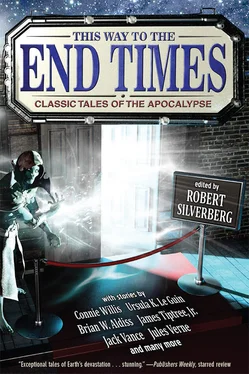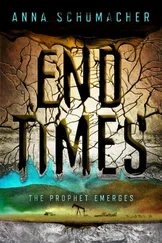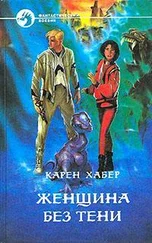“Yes. Time-travel technology is available in my day,” Uki confirmed. “It fell to us from several centuries in the future.”
“So you can skip from one page to another, without having to read the words in between. Where did you go?”
“I was recruited and sent far into the future.” Uki’s face darkened. “To the very end of time.”
All books are finite, thought Ashima.
“Those who sent me there,” the girl continued, “believed that when the collapse was complete, all events would be simultaneous, and the cause of the temporal folding-in would become evident. If we could understand the cause, we could change the past and restore the timeline.” The ice in Uki’s eyes burned
bright. “I failed.”
Ashima retreated a little into herself, shaken by the girl’s words. “I am very sorry the plan did not work,” she said moments later. “But why tell me all this? I have nothing to do with such cosmic stories.”
“Perhaps not yet,” Uki said. “But I am hoping that you will—and soon. You see, I am going to try a second time. Fear got the better of me on my first journey, but this time will be different. Come with me. Help me make things right.”
Ashima pondered Uki’s words for a long time, while the world outside their bubble became almost unrecognizable. The unborn sprang to life; new cities and conurbations flourished by the moment; wondrous objects parted the heavens, and all things became connected by the life-like iridescence. These are end days, Ashima thought, and I would be wise not to forget that. “I am sorry,” she said, voice quivering. “But I cannot do as you ask.”
Uki’s gaze turned scalpel-sharp. “Have you no loved ones you wish to save?”
Ashima shook her head. “I am an only child and have no children of my own. My husband and I separated forty years ago. My parents have long passed on.”
Uki lowered her voice. “Do you not wish to save yourself?”
“I have no illusions about my longevity.”
“Then why turn me down?”
Ashima shivered. “You offer me hope, and I fear that hope will break my spirit.”
Uki’s eyes softened. “If you fear hope,” she said, “then you fear life, and in a way you’re already dead.” Her words carried no accusatory tone, merely a kind of clinical detachment. She cocked her head sideways. “Allow me at least to share with you what I experienced on my journey,” the girl said. “You have nothing to lose.”
For the second time Ashima reflected deeply on her words. “Very well,” she said.
Uki stretched out her arms.
Ashima took a halting step forward.
They embraced.
Images and sensations flooded Ashima with electric force as she became Uki’s silent passenger in the reliving of her memories. Here was Uki, looking from outer space at an Earth millions of years in the future, watching the continents lock in. Then the scene shifted to Uki dancing among the rings of Saturn and contemplating the end of multi-cellular life on Earth. As the hours had passed Uki had become painfully aware of the sun ballooning into a red giant and engulfing Mercury, Venus, and the Earth. Using teleportation technology from thousands of years in the future, the girl had leaped to a place far beyond the Solar System, seeking solitude and respite. The jump had tired her, draining her in some subtle fashion.
How could you bear all the destruction? Ashima wondered.
I told myself it was not an ending, Uki replied, merely a transformation of energy and matter.
I would not have been so calm, Ashima said.
In truth, I wasn’t.
Ashima felt the doubts that had sprouted within Uki as though it were happening all over again now. The girl had slipped from shock to numbness and apathy; she had begun to question her mission.
I wondered whether I had contracted a mild form of the Disease, Uki said. To try and regain my sense of purpose, I practiced visualization; I pictured myself rescuing humanity from the brink of extinction.
But the exercise proved useless, Ashima surmised.
Indeed. I asked myself, “What if life isn’t worth saving?”
Surely, that was the Disease talking, Ashima said. The value of life is not for us to determine.
Ah, but it is, Uki said. Which is why I have asked for your help. If we do not decide to act, it will make little difference what others think about the subject.
In the end it was her instinct for self-preservation that had propelled Uki forward. Given the exponential nature of the collapse, she had only a few days left before everything went dark, cold, irreversibly dead. Uki’s energy matrix would fade into the great abyss of this heat death, floating in an endless morass of nothingness.
I had to confront this, Uki said. I had no choice but to jump forward in time, past the Dark Era of protonic decay, until I reached the very finality of things: over ten to the one hundred years in the future, which amounts to several real-time years from now.
As she shared her memory of the experience, Ashima truly understood the girl’s fear. There were costs to the temporal jumps. That same fatigue Uki had experienced before, during her teleportation exercises, would happen again, this time on a much larger scale. The terrible truth was revealed: Uki’s final jump might be too taxing, leaving her stranded in a gossamer realm of non-being.
Despite this, she had tried. Uki had jumped once, twice, ten times. And each time she had found she had not quite jumped far enough, and had become weaker then the time before. She had felt the very essence of her beginning to give way, to lose cohesion . . . .
Ashima was overwhelmed at the recollection. Her brain began to seize up. She couldn’t breathe. “Enough—”
She stumbled back and Uki severed the link.
A few minutes passed and Ashima at last regained her sense of self. Her breathing returned to normal and her head stopped spinning. “That was when you fled,” she said. “You turned around and came here, to the past.”
Uki lowered her head. “Yes. My courage failed me. A poet once said that time present and time past are both present in time future, and time future contained in time past; he was more right than he could have known. I drifted for a while, aimless. But then I felt your presence, like a beacon shining through the years. I was drawn here, to this time. To you.”
“You were incredibly brave,” Ashima said. Just thinking about the girl’s predicament chilled her. “What they asked of you was impossible.”
Uki’s orb-like eyes seemed to protrude, and her youthful face drew up into taut lines. “Impossible? No. I simply wasn’t ready.”
Ashima did not succeed in keeping incredulity out of her voice. “And now you are?”
“I am if you’ll come with me,” Uki said. “Together we can make all the difference in the world.”
“Or end up dissolved in that realm of non-existence,” Ashima said.
“The rewards outweigh the risks.”
Ashima thought about what Uki was proposing, and it filled her with weariness; she felt every one of her years, the slowness and clumsiness of her body. Her voice broke as she spoke. “I am an old woman. I am not the one you seek.” She tapped into the network of glittering lights, looking up Uki’s poetry reference. “Didn’t the same poet you quoted also say that what might have been, and what has been, point to one end, which is always present? My end is certainly present. Please return me to it.”
The softness of Uki’s voice belied the intensity of her pleading. “You can help me. You must.”
Ashima looked through the invisible curtain to the world beyond. If the girl insisted on keeping her captive here, she would surrender her body, but not her mind. She sat down and resumed her chant. “Tát savitúr váreṇ-i-yaṃ— ”
Читать дальше











